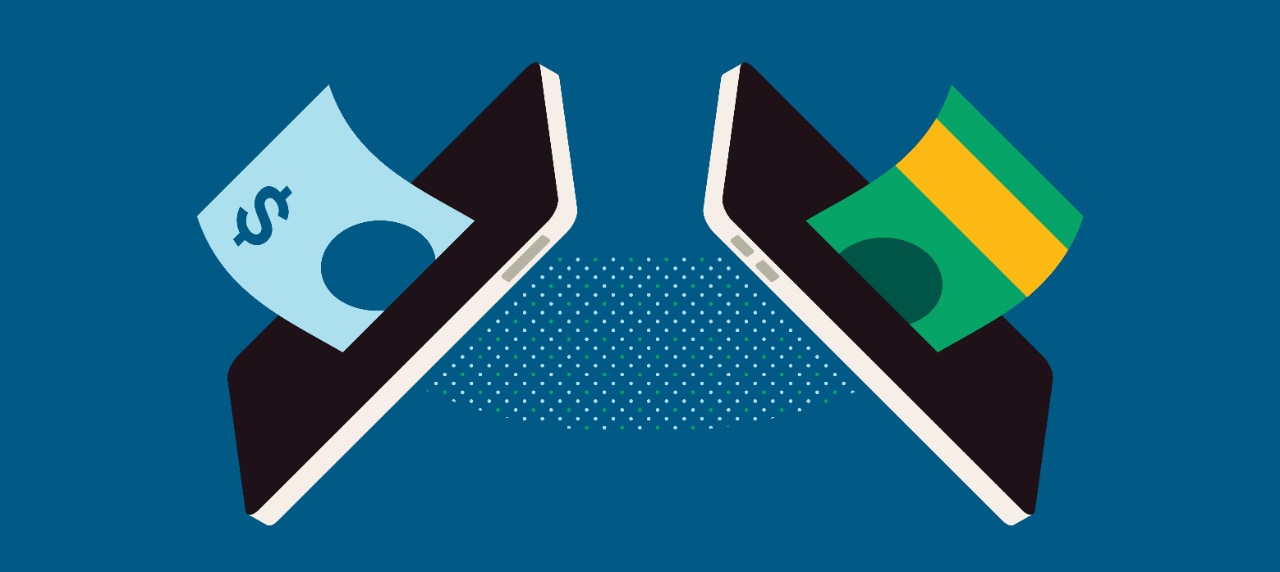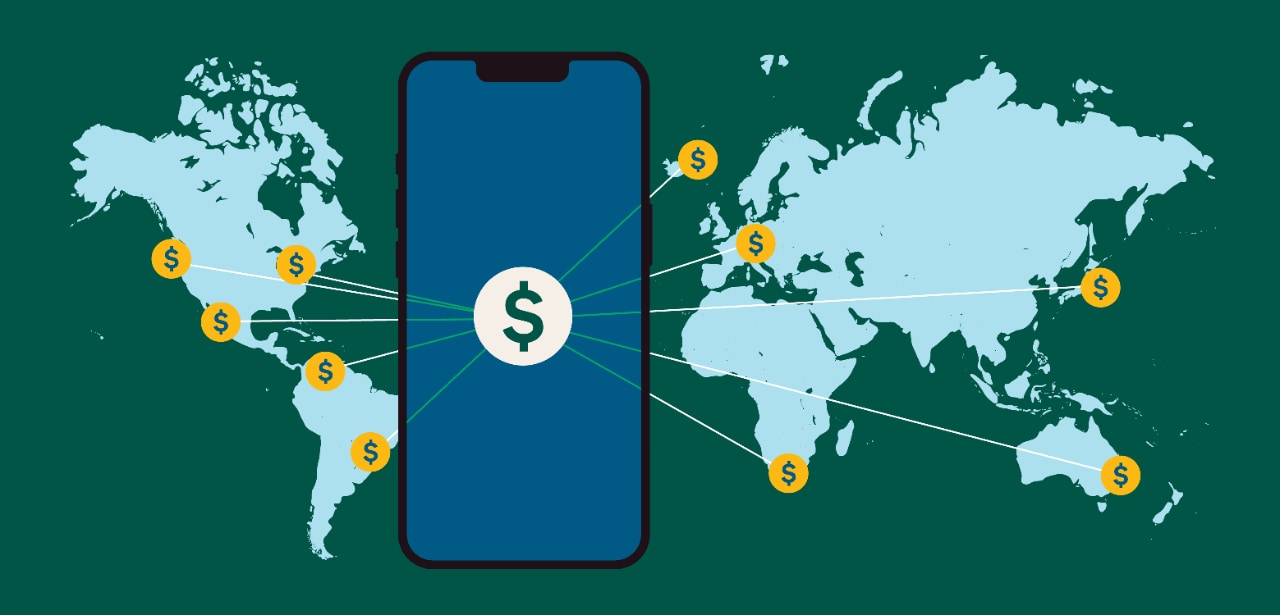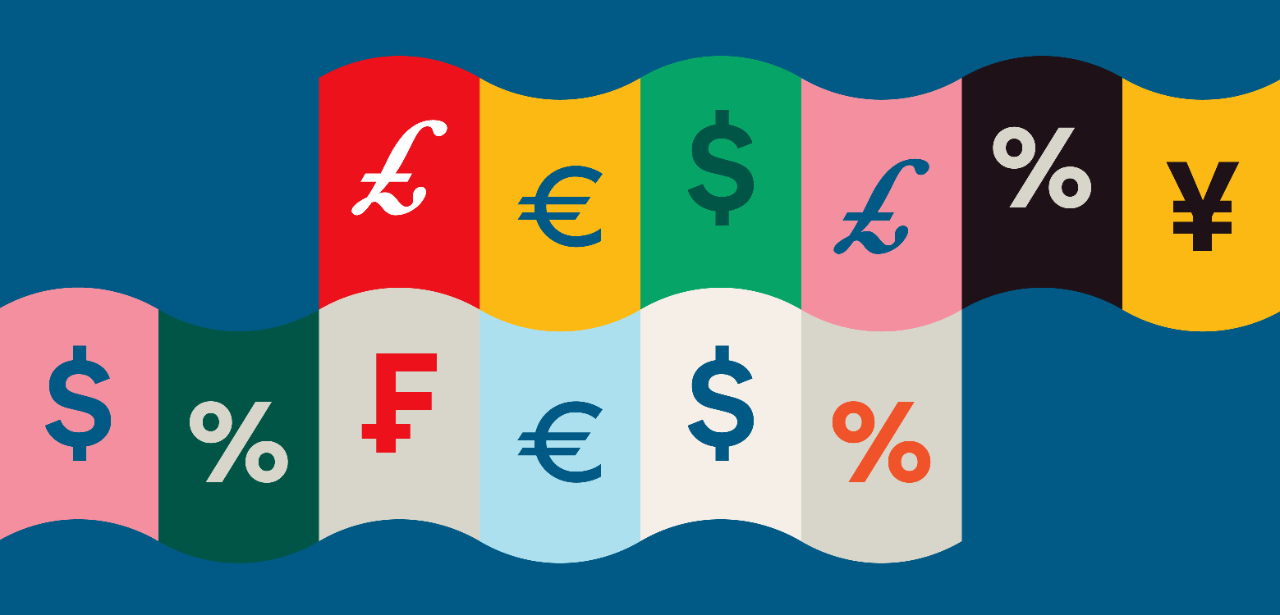Key takeaways:
Need to send money quickly? There are lots of different ways to move money between people without ever touching a banknote — you just need to know how and where you want your money to go.
Whether you're paying back a friend for dinner or sending a remittance to your loved ones back home, there's a money transfer option for you. Read on to learn all about domestic and international online money transfers.

You might be in the habit of paying for things with cash, your debit card or your credit cards, but there are lots of solid reasons to use online money transfers. For one, they're fast, easy, and secure. They can also be quite affordable.
Online money transfers are a great option for sending money to another country, which is why they're used for remittances. Depending on the type of money transfer you choose, you can put funds directly into someone's account, or set it up so they can receive cash.
There are also pros to sending funds online. You can include a note, and you'll have a digital transaction record of the transfer.
When we talk about money transfers, we're actually referring to a bunch of ways to move money electronically, each with its own strengths and features. Let's take a look.

Interac e-Transfer†
Interac e-Transfer is a type of domestic electronic funds transfer facilitated by the online payment system, Interac, and they're fully integrated into your existing bank accounts. They're a fast and easy way to transfer funds of up to $10,000 between Canadian bank accounts, and all you need is the email address or phone number of the person you want to send money to (also called the “recipient”).
To do a transfer, log in to your online banking on the web or in your mobile app and choose “Interac e-Transfer." From there, you can input the recipient's address or phone number and set up the transfer. They'll receive the money in their bank account in about 30 minutes.
International money transfers
If you want the simplicity of Interac e-Transfer, you can set up a Scotiabank International Money Transfer directly from your bank account in your Scotia mobile app and send it in a few easy steps.
- International Money Transfer - send money directly to your recipient’s bank account. Transfers are affordable and pay no transfer fee if you're part of the Scotiabank StartRight® program for newcomers1. A foreign exchange fee will apply to your transfer, but you'll see the exchange rates in the app prior to sending. Keep in mind that the money has to move across borders, so it can take up to five business days to complete. Note: To send a transfer, you'll need to have certain information on hand like the recipient’s account number, the name of their financial institution, their branch address and their international bank number (IBAN), BIC or SWIFT code. (Note: the recipient will need ID to pick up the funds.)
- Cash pick up through Western Union. Western Union money transfers are an easy way to send money to friends or family quickly, and they can even pick up the funds in cash.
With Western Union, you can send up to $999.99 per day for a transfer fee of $5 plus 1% of the send amount, or you can send up to $7,499.00 per day if you transact at a Scotiabank branch.2
To send a transfer, you'll need to have certain information on hand, like the name, address and phone number of the person you’re sending money to.
With so many options for transferring money online, there are a few things to keep in mind.
Rates
Different services have different rates and fees. You can keep your costs down by picking the best option for your needs.
Another thing to be aware of is that when money changes currency, it's affected by the fluctuating foreign exchange rate. You can always use the Bank of Canada Lookup tool to see if you're getting a favourable rate.

Delivery methods
It's also important to think about what services the person you’re sending money to can access. If you're sending remittances from Canada to a rural community in your home country, you might consider using a wire transfer for large amounts, or Western Union for smaller payments. This is because they can do a pickup at a Western Union or their post office — and receive it in cash.
Beware of scams
Even as technology provides more security, there are always scams to watch out for. In general, you should take steps to ensure you protect your personal information, and your money. When it comes to sending money online, you have a lot of control over your security as long as you're working with reputable institutions. And if you think you have reason to be suspicious, you can get more information using this Scam Identifier Tool.

Bottom line
Sending money has never been easier. Whether you're paying back a friend for pizza, buying a second-hand couch, sending a remittance to family back home or putting a large deposit on a foreign property, there's a way to move money online that will work for you.


